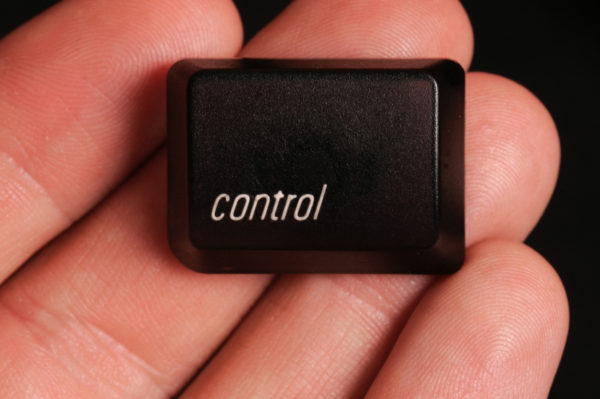Headed out for New Braunfels with my girlfriends in just a few minutes, so I’ll keep this brief. I may or may not post Saturday or Sunday. It’s a fine line between satisfying my OCD and having too much fun! Enjoy today’s post!
Me: Good morning, sweet lady! How are you?
Kim: Hello!
Me (Looking at a huge geode beside her): Is that a geode?
Before answering me, she talks about how her last client ran way over and was difficult to cut off, something Kim hates to do.
Me: Say, is that a geode behind you?
Kim: Yeah, that’s a 300 pound amethyst!
Me: That is HUGE! So beautiful. Wow! I love those things.
Kim: Thank you. I found it dirt cheap yesterday and couldn’t say no. I was like, ‘Obviously, these people don’t know what they have!’ So I brought it home.
Me: That is awesome.
Kim: Then I had to call for some help.
She laughs.
Me: I bet you did! So how’s our boy, today? Erik, I love you!
Erik blows kisses.
Kim: He’s been really talkative. He’s been like, I just love when he comes in sometimes with these new [unintelligible] because you know me; I’m like, ‘Anything new? Tell me something I haven’t heard from you before.’
Me: Yeah.
Kim: And he was talking about maybe changing the subject because he’s been talking about a lot of cool stuff. His vibe changes, too, and I think it’s because, I don’t know. He’s just really talkative.
She chuckles.
Me: Well maybe we’ll be able to get to those subjects, but first I’m going to start out with something that affects everybody, every human being, and that’s stress. Erik, why do we humans stress out and sometimes about the littlest things?
Erik (scratching his head): Ah, god. It’s like poison. Why do we eat our own poison?
Me: I know! We eat our own poison! That’s exactly what it is! Why?
Erik: Yeah, we stress and put it out there, and it’s basically like, “Yep, this is poison, and I know I’m going to eat it.” WAIT! STOP THE SHOW! (blowing kisses again) I love you, Mom!
Me: I love you, too! I hope I said that, but you know I do.
Erik: I always have to say it before I start.
Me: OCD!
Kim: Yes.
Erik: Okay, so stress. Mom, the reason people stress is because of a thought. They create a thought and then they believe it. Most of the time the thought isn’t even reality. It isn’t true, but when we believe it, when we adhere to it—
Kim (Palms together, then stretching them apart): He’s going like they’re sticking together. He goes, “Ew, look,” and he’s showing this glue [between his hands.]
Erik: When we stick to it, it’s hard to pull away from it. Then it’s hard to get away from stress, to distress and unwind. And then we (rolling his eyes) gotta go to alcohol or smoking and all that other stuff to distress. The reason why we do it? Mom, it’s habitual. It’s unconsciousness.
Kim seems like she’s struggling a little.
Kim: I just love it when he gets so passionate about something because he gets so deep.
Erik: It’s automatic. It makes me sad that it’s so automatic now, this whole process.
Kim: I’ll tell you what he means by that in just a second.
Erik: I’m sad that it’s so automatic because we’re constantly in default mode. We have a thought; we believe it, and then we default to reacting to it.
Me: Mm.
Erik: That’s what creates stress. That’s what lets that shit fester.
Kim rolls her eyes and laughs.
Erik: When we’re not mindful of our thoughts, it’s an automatic response to default to stress and anxiety. But a lot of times it’s because people live in a box and have the, “Yeah, but” syndrome. (Kim mimics him looking at his butt.) Is my butt getting’ bigger?
I laugh.
Erik: Meaning the, “Yeah, but…” syndrome. It’s like when you have your thoughts, you don’t have to worry. You don’t have to be stressed. “Well, yeah, but this is going on in my life. I should worry, right?” That’s become the natural response, the default. Oh, barf!
(He sticks a finger in his mouth like he’s gagging himself.)
I chuckle.
Erik: Sometimes it’s a collective response. It can be collective depending on what it is. Let’s say, for example, you and your co-workers find out that your entire computer system is about to be updated.
Kim: It’s funny. He’s talking about why stress is contagious.
Erik: So you have all these co-workers anticipating this big change, and one starts talking to another like, “Oh my god, this is going to be so stressful because all of our paperwork is going to change now!” So they’re creating this stress, then it becomes contagious so it becomes collective.
Me: Yeah, the energy just floats from one person to the next and that energy affects everybody else.
Erik: Right. Right. And that’s when you’re around that and surrounded by it, it can be difficult to stay above it. It just takes mindfulness. When you can understand that they’re creating that for themselves, you can choose to not be a part of it.
Kim: Oh! Hold on. Let me listen to him for just a little bit.
(Pause)
Erik: Stress and experiencing stress is a state of unconsciousness. Knowing that you have a choice is proof of consciousness. Knowing you have a choice meaning like, “I don’t have to stress about this,”—it might be the shittiest situation you can imagine—but knowing you have a choice to respond with anxiety or just “be”—
Erik puts his palms together in front of his chest and closes his eyes.
Erik: Knowledge of that choice is a state of consciousness. If I can get you people to be conscious and stay in that consciousness, we can eliminate the fear, the stress.
Me: It doesn’t do us any good, does it? Stressing about something doesn’t solve the problem either, right? So, why bother. Just surrender, let it be, and do what you can that’s in your control but don’t go to that emotional chaos place that causes ulcers.
Oh, Elisa, leave this to Erik please for the love of god.
Erik: Right. There are even people who worry about worrying. They know they worry too much, and they worry about that. That can cause so much sickness.
Me: Yeah.
Erik: The power of presence eliminates the fear from which worry is born. Fear is the gateway for stress and anxiety and worry. When you stay as present as possible, there’s no fear. There’s no fear when you’re conscious and awake. So when you’re in a stressful situation—
Kim: For example, what I went through Saturday. It sucked.
Me: Mm.
Kim: There were hundreds and hundreds of people bawling. Little kids were puking because they were crying so hard. Being able to talk to my guides throughout that experience and stay present actually worked.
Me: Good.
Kim: I didn’t cry. I wasn’t upset. It was hard when I got home, but—
Me: Well, do you want to explain what that was? People are probably wondering. Or maybe you don’t want to.
Kim: Sure. Yeah, um, my husband is in the army, and he’s been activated to do some training. His whole unit has been activated for some specialized training, so all of these people are perseverating on and fixating on “the absence of.”
Me: Going to Afghanistan, right?
Kim: Yeah, and so they’re afraid because their soldier has to go away and do some training for a little bit, but if you really understand how you’re reacting and why you’re reacting that way, it’s because you’re unconscious. You’re not in the Now moment. You’re anticipating all the absences, all the loss, all the fear and all the worries. When you practice being present, you transcend all that fear. You transmute it, rather. Erik is saying kind of the same thing.
Erik: No matter what kind of situation you’re in, if you’re stressing, it’s because you’re not present.
Me: You’re not in the Now. Where are you? Are you in the future or the past or both?
Erik: You can be in both. Either one, sometimes both. Most of the time it’s either one or the other. Right now, collectively looking at mankind, most of the stress is connected to worries about the future.
Me: Yeah, I bet.




